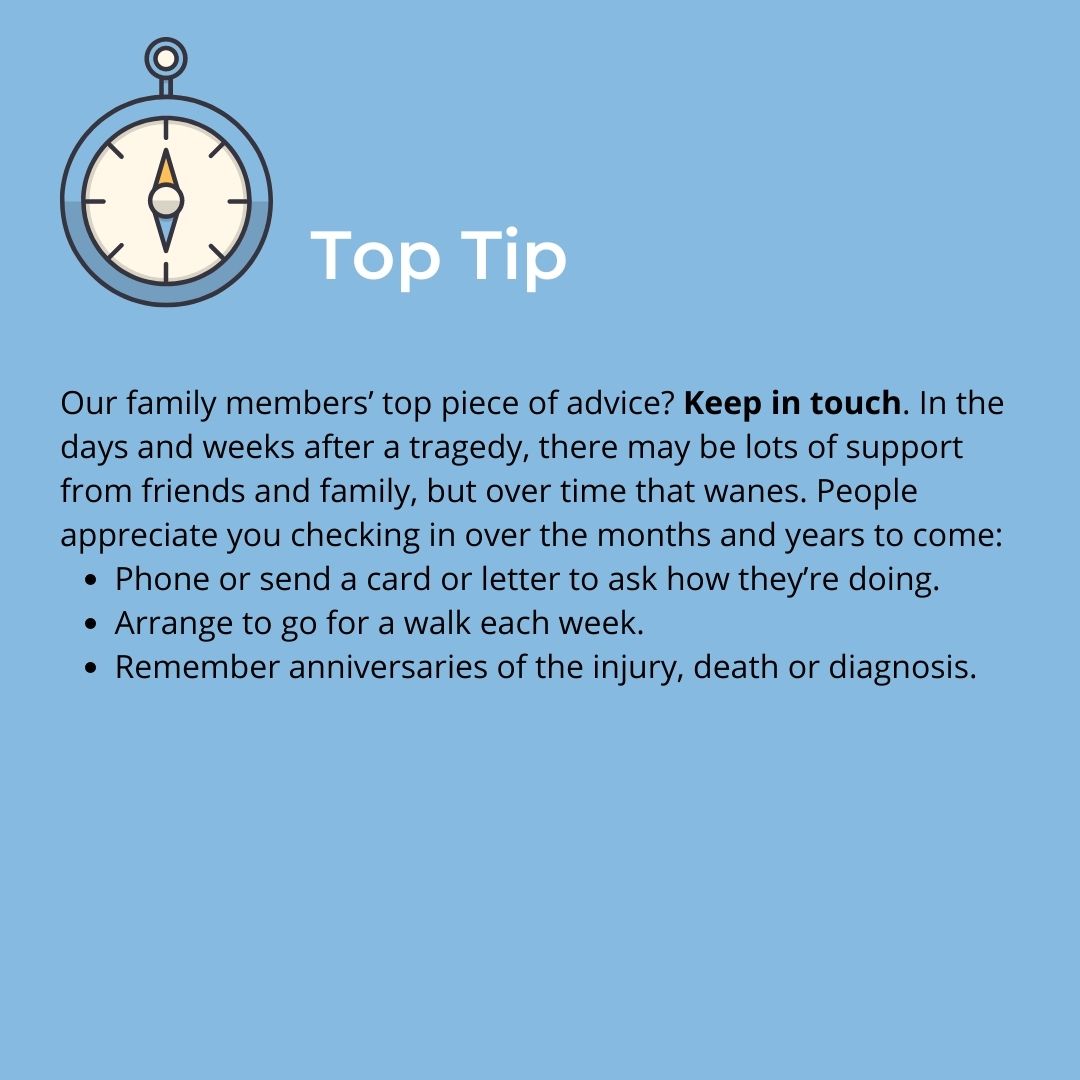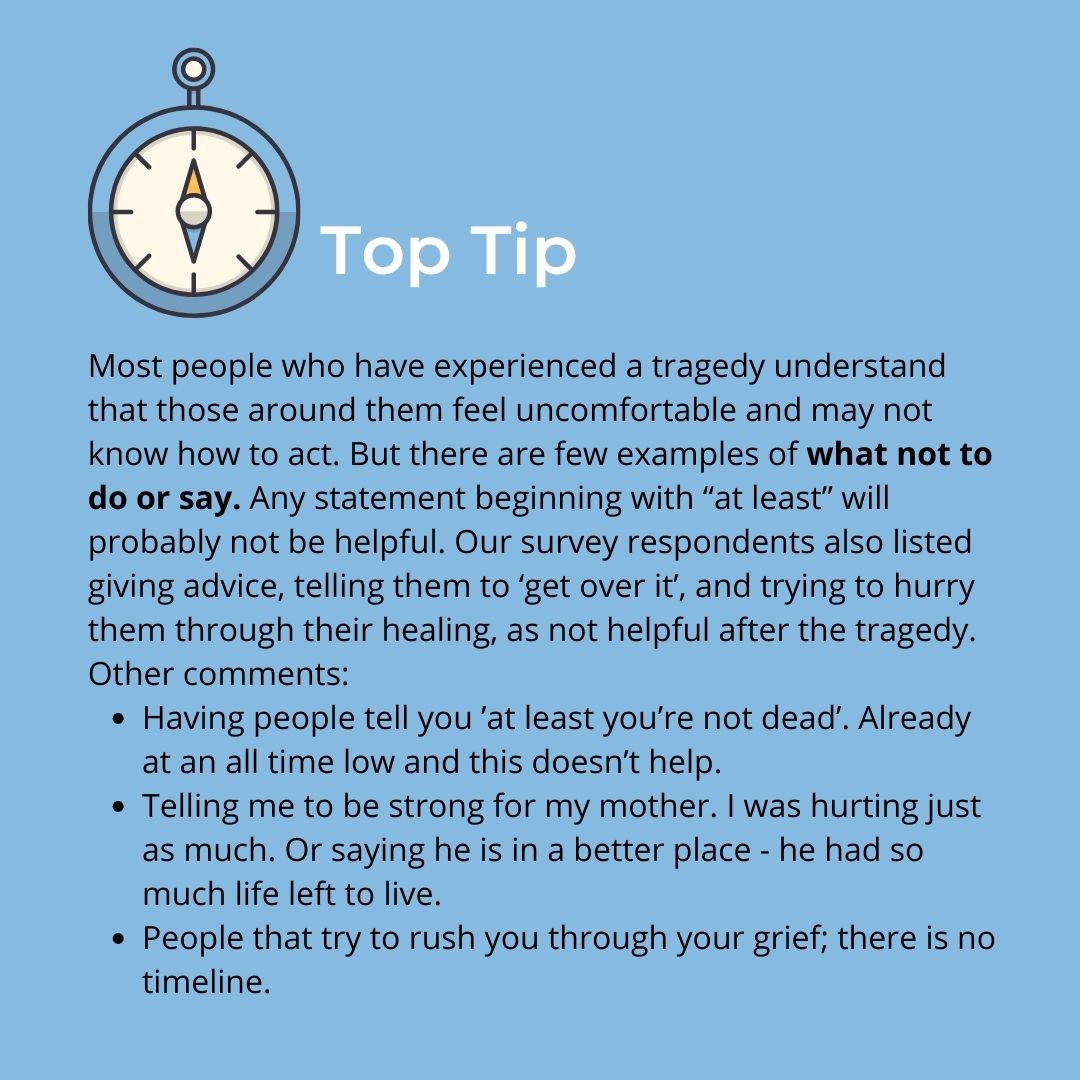Tips from Threads of Life families:
How to support someone after a workplace tragedy
 It’s only human to feel awkward and unsure when someone you know experiences a work-related tragedy. You don’t want to intrude on their grief, and you’re afraid you’ll say the wrong thing.
It’s only human to feel awkward and unsure when someone you know experiences a work-related tragedy. You don’t want to intrude on their grief, and you’re afraid you’ll say the wrong thing.
When a tragedy occurs, we need other people more than ever – sometimes for practical, physical help and almost always for emotional support. But a recent survey by Threads of Life demonstrates that many of those affected by a work-related tragedy don’t have the human support that would help them heal, or don’t have it at key points in their journey.
You can help be that support for your friend, coworker or neighbour. Based on our survey, below are some tips from Threads of Life families.
TIP # 1: Recognize grief
We associate grief with death, but there are many types of grief, connected with many types of losses. People may grieve because a loved one has died, and they may also grieve the loss of health, loss of the life they expected, loss of a job, loss of favourite activities, loss of a home or friends. All these types of grief need to be recognized and supported. To continue to heal and find a new normal for their lives, it’s important that those coping with workplace tragedy feel supported not just in the period immediately after the tragedy, but in the weeks, months and years that follow.
TIP # 2: Listen
“Just someone being there listening was how I was able to get through a lot of it,” one respondent commented in our survey. Learn about active listening and practice that – most people after a tragedy are not looking for advice or even reassurance. Let them talk, even if they are repeating. Let them say the name and talk about their loved one. Share a favourite story about someone who has died, or about the past. One family member said “Talking about my loved one brings such joy and if we cry when you say their name, that is a gift. It is a gift that you speak of them and I am truly grateful.”
TIP # 3: Be there
It’s common to tell individuals coping with a tragedy “let me know if I can help”. But people may not feel comfortable asking for support, or may not even realize what support they need. Be there for whatever they might need – emotional or practical – and continue to be there over time. The support needed will vary as time passes following the tragedy, and depending on the nature of the tragedy and the situation of the individual. Families appreciate when others demonstrate thoughtful consideration of what might be helpful. Often this is practical assistance (help with laundry, meals etc.) when the tragedy is new, and more emotional support (phone calls, going out for a coffee, hugs) as time passes. For families providing care for an injured or ill member or coping with tragedy while caring for young children, the need for practical support continues. “While some of those closest to me, for reasons of their own, could not be there for me, I had extended family and a few friends who have tremendously supported me,” one mother said. “I still have a few who always make sure that on [my son’s] anniversary and birthday, I am kept busy and don’t have to be alone.”



 Find Support
Find Support Donate
Donate